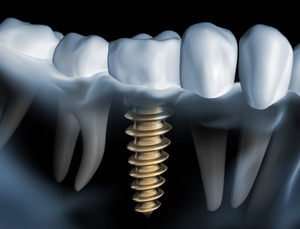
Dental implants are a popular solution for replacing missing teeth, offering a durable and natural-looking alternative to traditional dentures and bridges. Despite their growing acceptance, several myths and misconceptions persist about dental implants that can influence patients’ decisions. This article aims to clarify these myths by addressing common misunderstandings and providing accurate information.
Myth 1: Dental Implants Are Painful
One of the most prevalent myths is that dental implants are extremely painful. In reality, the procedure is usually performed under local anesthesia, ensuring that patients experience minimal discomfort. During the recovery period, most individuals report only mild discomfort, comparable to a routine dental procedure. Modern techniques and pain management strategies further reduce the discomfort, and many patients resume their normal activities within a few days. The perception of pain often arises from the fear of surgery itself, but with advancements in dental technology, the procedure is more comfortable than ever.
Myth 2: Dental Implants Are Not Durable
Another common misconception is that dental implants are not durable and may require frequent replacements. In truth, dental implants are designed to be a long-term solution. Made from biocompatible materials like titanium, they integrate with the jawbone in a process called osseointegration, making them as stable and strong as natural teeth. With proper care and maintenance, including regular dental check-ups and good oral hygiene, dental implants can last for decades. The longevity of implants often surpasses that of traditional dental restorations, which may need to be replaced or repaired more frequently.
Myth 3: Dental Implants Are Only for Older Adults
Many people believe that dental implants are only suitable for older adults, but this is not necessarily true. While age can be a factor, dental implants can be an effective solution for a wide range of patients, including younger individuals who have lost teeth due to injury, disease, or congenital issues. The key factors for successful implant placement are the health of the jawbone and the overall oral health of the patient. As long as the patient has sufficient bone density and maintains good oral hygiene, age is not a limiting factor. In some cases, younger patients may even benefit from early implant placement to prevent further dental issues.
About the Author
Dr. Donald Marks has called Pennsylvania his home his entire life, and being able to help members of his community look and feel their best through the power of exceptional dentistry is incredibly rewarding for him. Dr. Marks received his dental degree from the University of Pittsburgh School of Dental Medicine, and has worked with some of the finest dentists in the world to hone his clinical skills.
If you have any questions about dental implants, he can be reached at his website or by phone at (814) 826-3767.




